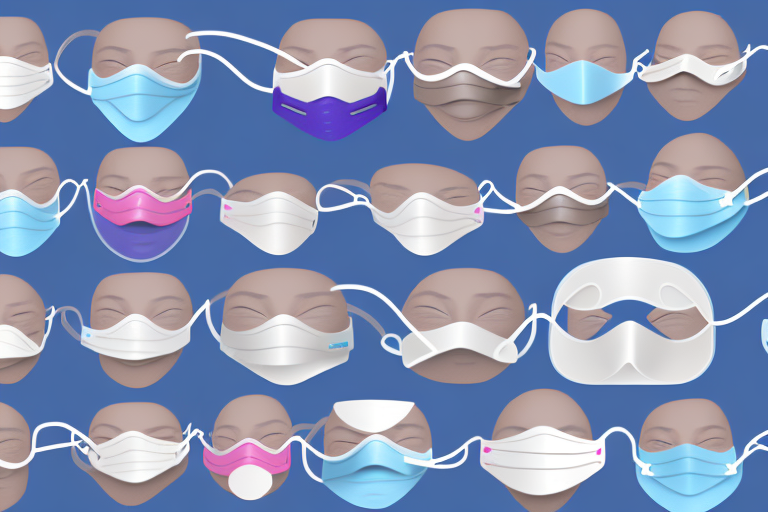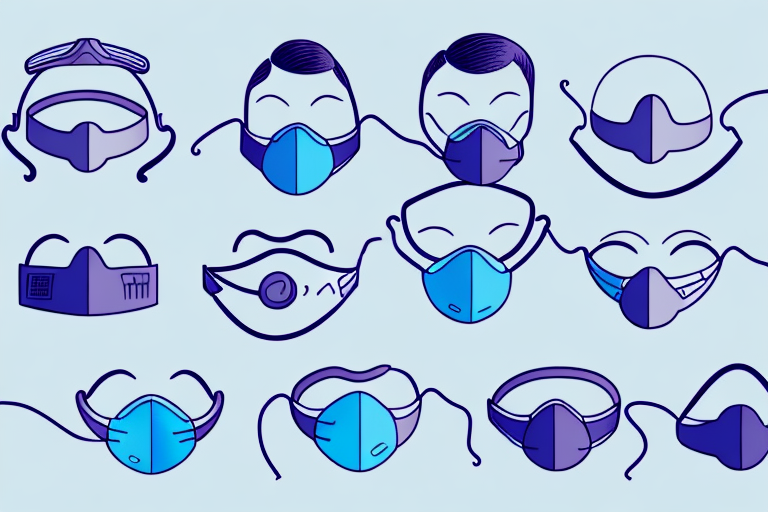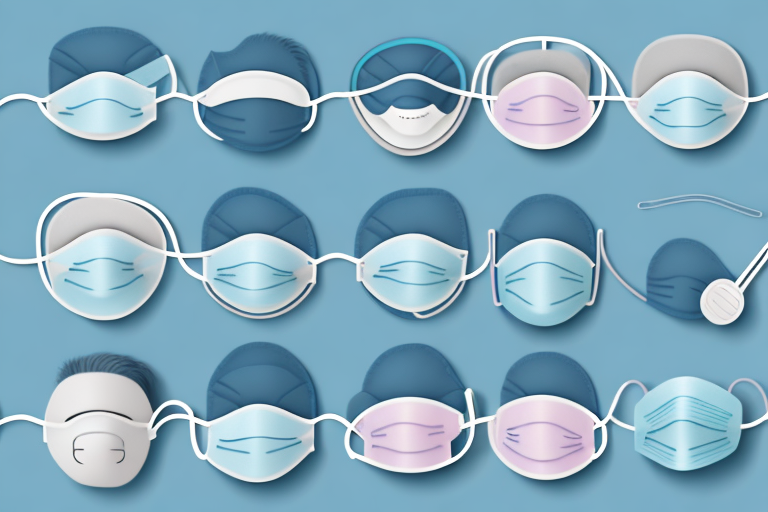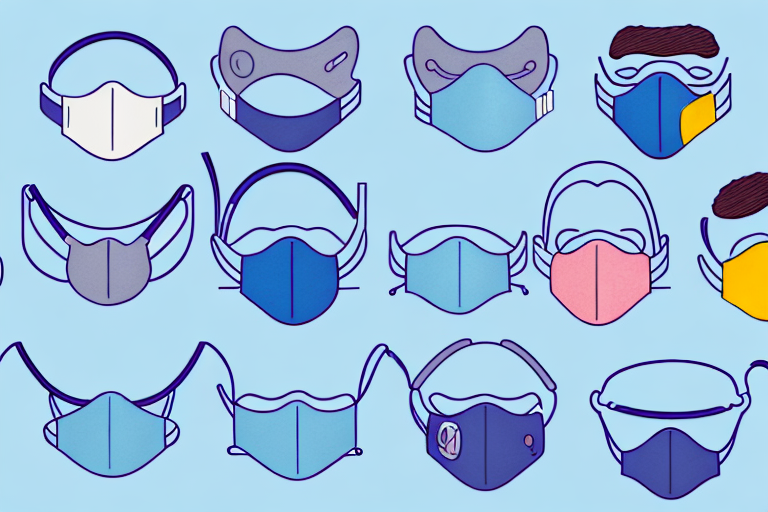If you have been diagnosed with sleep apnea, your doctor may have recommended continuous positive airway pressure (CPAP) therapy to improve your breathing and overall health. One critical component of this therapy is the CPAP mask.
With so many options available, it can be overwhelming to make the right choice. In this article, we will explain the differences between resmed masks and help you find the right one for your sleep apnea therapy needs and preferences.
Understanding Sleep Apnea and Its Treatment Options
Sleep apnea is a common sleep disorder where breathing repeatedly stops and starts during sleep. This can lead to a number of health consequences such as high blood pressure, heart disease, and more. One treatment option for sleep apnea is CPAP therapy, where a machine delivers a constant flow of air through a mask to keep your airway open while you sleep.
What is Sleep Apnea?
Sleep apnea occurs when your throat muscles intermittently relax, blocking your airway and causing you to snore loudly. The lack of oxygen triggers your brain to pull you out of deep sleep just enough to kickstart breathing again. This can happen multiple times throughout the night, leading to a poor quality of sleep and potentially serious health consequences.
There are several risk factors that can increase your likelihood of developing sleep apnea. These include obesity, smoking, alcohol consumption, and a family history of sleep apnea. Men are also more likely to develop sleep apnea than women.

Types of Sleep Apnea
There are three types of sleep apnea – obstructive sleep apnea, central sleep apnea, and complex sleep apnea.
Obstructive sleep apnea is the most common and occurs when the muscles in the back of the throat fail to keep the airway open. This can be caused by excess weight, a narrow airway, or other factors that cause the airway to become blocked.
Central sleep apnea occurs when your brain fails to transmit proper signals to the muscles responsible for breathing. This can be caused by certain medical conditions, such as heart failure or stroke, or the use of certain medications.
Complex sleep apnea, also known as treatment-emergent central sleep apnea, is a combination of both obstructive and central sleep apnea. Learn more about the connection between Ttinnitus and sleep apnea.
Common Sleep Apnea Treatment Options
CPAP therapy is a common treatment option for sleep apnea, but it’s not the only one. Other options include BiPAP therapy, which adjusts the pressure when you breathe in and out, and APAP therapy, which adjusts the pressure automatically based on your needs throughout the night.
In addition to these therapies, lifestyle changes can also be effective in treating sleep apnea. Losing weight, quitting smoking, and avoiding alcohol and sedatives can all help to reduce the severity of sleep apnea symptoms.
If you suspect that you may have sleep apnea, it’s important to speak with your doctor. They can perform a sleep study to diagnose the condition and help you choose the best treatment option for your specific needs.
The Importance of Choosing the Right CPAP Mask
When it comes to CPAP therapy, choosing the right mask is critical. The mask is responsible for delivering the air into your airway and maintaining a seal to prevent air leaks. Some factors to consider when choosing a mask include comfort and fit, effectiveness of treatment, and adherence to therapy.

Comfort and Fit
A comfortable mask is crucial for adhering to your therapy. The mask should not cause pain or discomfort, and the fit should be snug but not too tight. It is important to note that a mask that is too tight can cause skin irritation and even pressure sores. ResMed Masks come in a variety of sizes and styles, making it easier to find the right fit. Additionally, some masks have adjustable straps or cushions to provide a more customized fit.
Another factor to consider when it comes to comfort is the material of the mask. Some masks are made of silicone, while others are made of cloth or foam. It is important to choose a material that is comfortable for you and does not cause any skin irritation.
Effectiveness of Treatment
The effectiveness of your CPAP therapy depends on how well the mask keeps your airway open. If your mask is not sealing properly, you may experience air leaks that can reduce the effectiveness of the therapy. ResMed Masks are designed to provide a secure seal, ensuring the maximum effectiveness of the therapy.
In addition to the mask itself, it is important to regularly replace the mask and its components, such as the cushion or headgear. Over time, these parts can wear out and lose their effectiveness, leading to air leaks and reduced therapy effectiveness.
Adherence to Therapy
Adhering to your therapy is essential for success. A mask that is uncomfortable or does not fit properly can lead to non-compliance and affect your overall health. ResMed Masks are known for their comfortable design, making it easier for patients to adhere to their therapy.
It is also important to find a mask that fits your lifestyle. For example, if you are an active sleeper, you may want to consider a mask that is designed for side sleeping or has a more secure fit. If you travel frequently, you may want to choose a mask that is lightweight and easy to pack.
Overall, choosing the right CPAP mask is essential for effective therapy and improved health. By considering factors such as comfort, fit, and lifestyle, you can find a mask that works for you and helps you achieve better sleep.
ResMed Mask Categories and Their Unique Features
ResMed is a leading manufacturer of sleep apnea masks, offering a wide variety of masks to fit every patient’s needs. The three main categories include full-face masks, nasal masks, and nasal pillow masks. Each category has its unique features that cater to specific needs.
Full Face Masks
Full-face masks cover both your nose and mouth, making them a good option if you breathe through your mouth or experience frequent nasal congestion. ResMed’s AirFit F20 full-face mask features a cushioned seal for added comfort and reduced facial markings. The mask’s InfinitySeal cushion adapts to different facial features and movements, reducing leaks and providing a secure fit. The mask’s magnetic headgear clips allow for easy adjustment and removal, making it convenient for patients who wear glasses or need to get up frequently during the night.
Furthermore, the AirFit F20 has a quick-release elbow that allows patients to easily disconnect from the tubing without removing the mask, making it easy to get up during the night or take a break from therapy.
Nasal Masks
Nasal masks cover your nose only and are a good option if you breathe through your nose. ResMed’s AirFit N20 nasal mask features a comfortable and flexible frame that adapts to your facial contours, reducing pressure points and adding stability. The mask’s InfinitySeal cushion provides a secure seal, even during movement, reducing leaks and enhancing therapy effectiveness.
The AirFit N20 mask also features a magnetic headgear clip, making it easy to adjust and remove the mask. The mask’s flexible frame and cushion allow for a comfortable fit, reducing irritation and discomfort during therapy.
Nasal Pillow Masks
Nasal pillow masks have small cushions that seal around your nostrils, making them a good option if you prefer minimal coverage or experience claustrophobia. ResMed’s AirFit P10 nasal pillow mask is one of the quietest and lightest masks on the market, making it an attractive option for those looking for a comfortable solution.
The AirFit P10 mask features a dual-wall nasal pillow that adapts to different nostril sizes, providing a secure seal and reducing leaks. The mask’s flexible and lightweight design allows for comfortable movement during sleep, reducing irritation and discomfort. The mask’s QuietAir vent technology reduces noise, enhancing therapy effectiveness and improving patient comfort.
In conclusion, ResMed offers a variety of masks that cater to different needs and preferences. Whether you prefer full-face masks, nasal masks, or nasal pillow masks, ResMed has a solution that can enhance your therapy experience and improve your sleep quality.
Comparing Popular ResMed Mask Models
AirFit F20 vs. AirTouch F20
The AirFit F20 and AirTouch F20 are two of the most popular full-face masks in the ResMed line-up. They both feature a cushioned silicone seal and magnetically attached headgear for easy removal and reattachment. However, there are some key differences between the two models that are worth considering.
The AirTouch F20’s cushion is made of memory foam, which provides a comfortable fit without the need for manual adjustments. This is a great feature for those who want a mask that conforms to their unique facial contours. The AirFit F20, on the other hand, has a traditional silicone cushion that requires manual adjustments to get the right fit.
Another difference between the two masks is the noise level. The AirTouch F20 is designed to be quieter than the AirFit F20, which is an important consideration for those who sleep with a partner or in a shared bedroom.

AirFit N20 vs. Mirage FX
The AirFit N20 and Mirage FX are two of ResMed’s most popular nasal masks. They both feature a comfortable cushion and an adjustable frame, but there are some differences between the two models that are worth noting.
The AirFit N20’s flexible frame adapts to your facial contours, reducing pressure points and providing a more comfortable fit. This is a great feature for those who want a mask that is tailored to their unique facial structure. The Mirage FX, on the other hand, has a dual-wall cushion that provides a comfortable, secure seal.
Another difference between the two masks is the size. The AirFit N20 is available in three different sizes, while the Mirage FX is available in two. This means that the AirFit N20 may be a better option for those who have a hard time finding a mask that fits properly.
AirFit P10 vs. Swift FX
The AirFit P10 and Swift FX are two of ResMed’s most popular nasal pillow masks. They both offer minimal coverage and maximum comfort, making them a great option for those who want a mask that won’t interfere with their sleep.
One of the key differences between the two masks is the noise level. The AirFit P10’s QuietAir vent is designed to reduce noise and draft, which is an important consideration for those who sleep with a partner or in a shared bedroom. The Swift FX, on the other hand, does not have this feature.
Another difference between the two masks is the size. The AirFit P10 is available in three different sizes, while the Swift FX is available in two. This means that the AirFit P10 may be a better option for those who have a hard time finding a mask that fits properly.
Overall, both the AirFit P10 and Swift FX are great options for those who want a comfortable, minimal coverage mask. However, the AirFit P10’s QuietAir vent and wider range of sizes may make it a better option for some users.
Conclusion
Choosing the right ResMed Mask can determine the success of your CPAP therapy. Consider your sleep apnea diagnosis, comfort and fit preferences, and specific therapy needs when selecting a mask. With ResMed’s wide range of mask options and unique features, you can find a mask that fits your needs and preferences, allowing you to sleep soundly and breathe easily.

